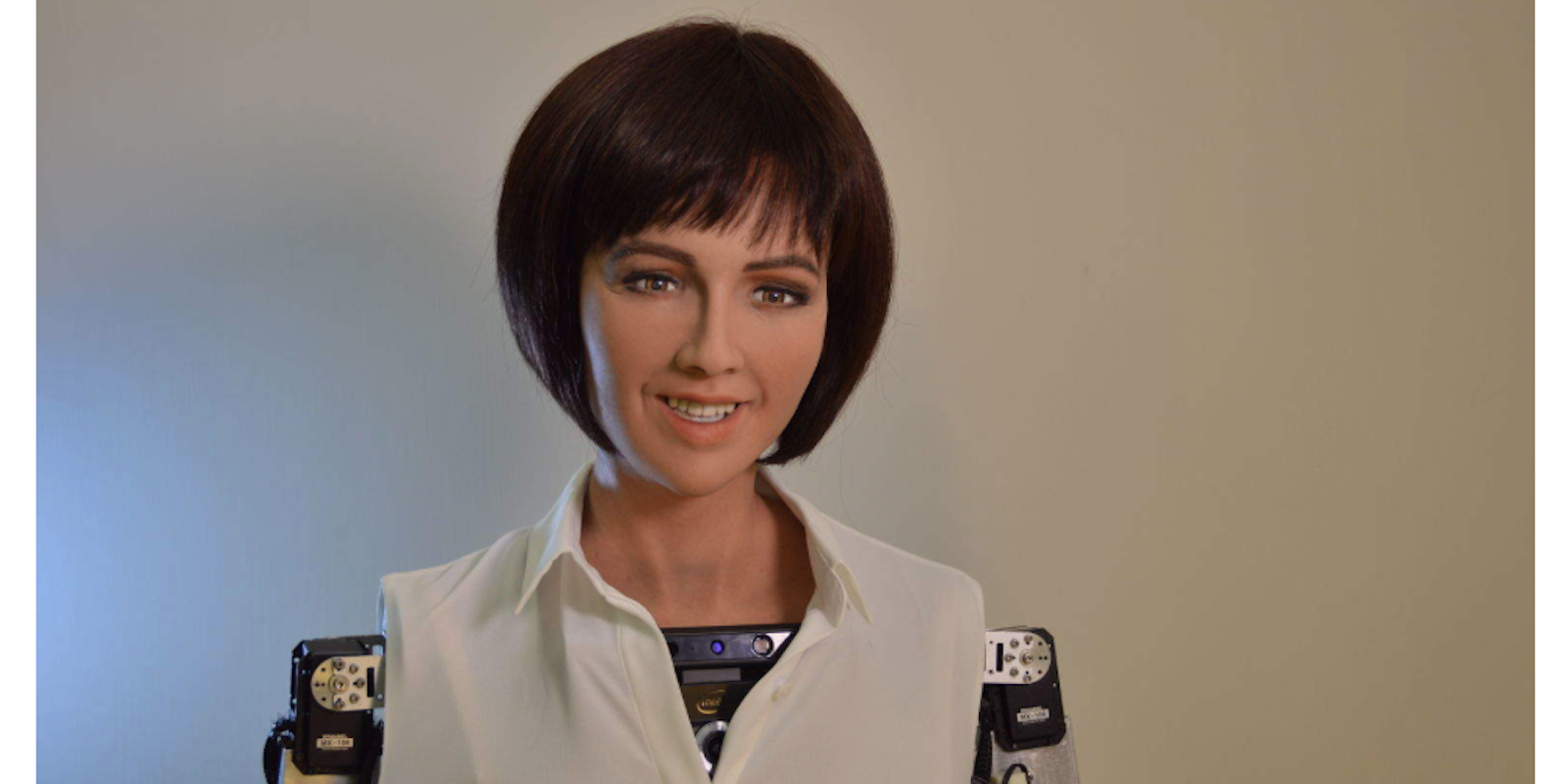Sophia the robot, the Twitter account-wielding robo-sapien who gained Saudi Arabian citizenship last fall, has her fair share of critics. Developed by Hanson Robotics, the humanoid bot got into a Twitter feud with Chrissy Tiegen earlier this month. Now, Yann LeCun, Facebook‘s head of AI research, has spoken out against the social robot.
Hanson Robotics’ CEO has said in the past that Sophia is “basically alive,” but LeCun says she is more like a puppet. As Quartz explains, Sophia is a mix of robotics and pre-programmed, situation-specific code. She has three main modes: a research mode where she can answer simple questions about what she observes in her surroundings, a speech-reciting mode that uses canned responses and AI to match facial expressions with those responses, and a chatbot mode, which is a mix of pre-programmed statements and facts learned from the internet.
While she does use AI, she is not truly capable of concocting the fun, clever responses we see and hear entirely on her own. To LeCun, Hanson Robotics’ misrepresentation of Sophia’s true capabilities is basically blasphemous.
“More BS from the (human) puppeteers behind Sophia,” LeCun wrote on Facebook Wednesday. “Many of the comments would be good fun if they didn’t reveal the fact that many people are being deceived into thinking that this (mechanically sophisticated) animatronic puppet is intelligent. It’s not. It has no feeling, no opinions, and zero understanding of what it says. It’s not hurt. It’s a puppet.”
LeCun earlier took to Twitter to express his disgust.
This is to AI as prestidigitation is to real magic.
— Yann LeCun (@ylecun) January 4, 2018
Perhaps we should call this “Cargo Cult AI” or “Potemkin AI” or “Wizard-of-Oz AI”.
In other words, it’s complete bullsh*t (pardon my French).
Tech Insider: you are complicit in this scam. https://t.co/zhUE4V2PSR
To Hanson Robotics, Sophia represents hope and imagination for the future of AI. (It doesn’t hurt that she’s good publicity, too.) However, to AI researchers, Sophia misrepresents the state of modern AI. Sophia gives the illusion that AI is far more advanced, at least in a humanoid, social context, than it currently is. This is problematic in sating public expectations of consumer-facing AI products.
While Sophia is fun, LeCun certainly makes a good point.
H/T The Verge


